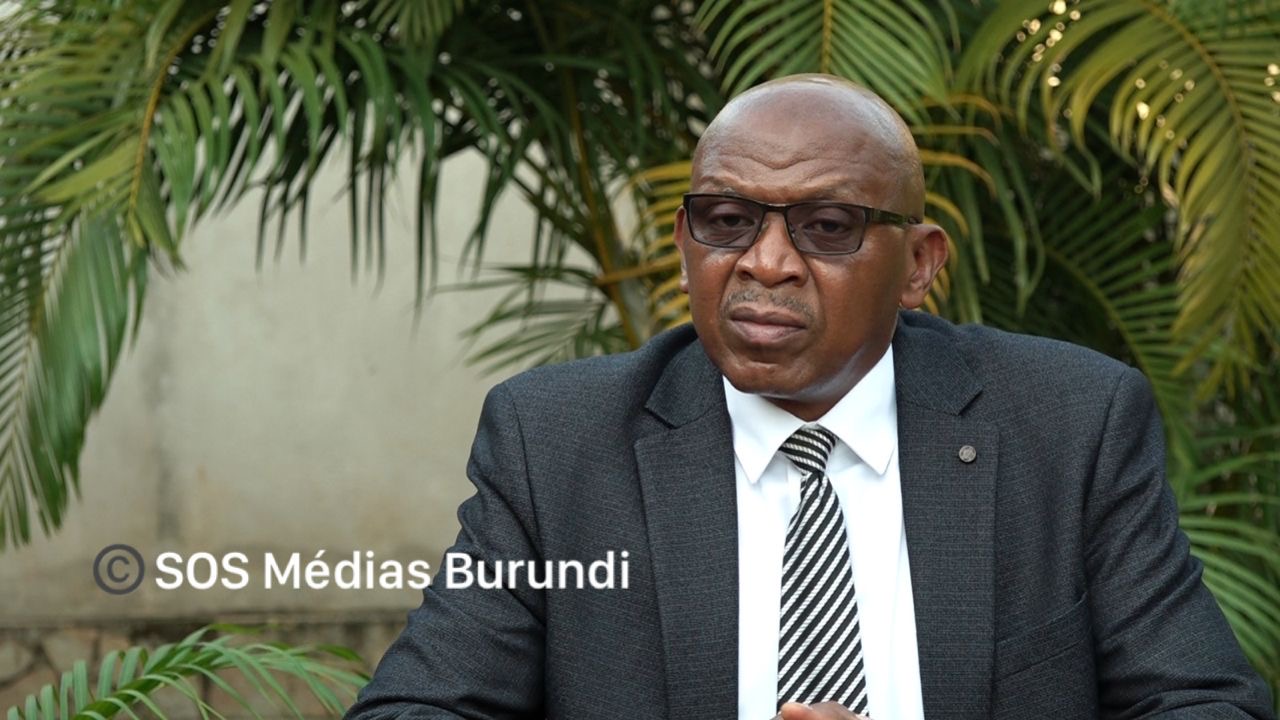Burundi – Agathon Rwasa : « This is not an election, it’s a CNDD-FDD show » – The opposition leader calls for a national conference to avoid authoritarianism

By SOS Médias Burundi
Bujumbura, June 2, 2025 – As the legislative and district elections approach, Burundi is plunged into a tense political climate marked by mistrust, repression, and a lack of democratic debate. In an exclusive interview with SOS Médias Burundi, Agathon Rwasa, a long-time opposition figure, denounces an electoral charade orchestrated by the CNDD-FDD, the ruling party for nearly three decades. He calls for the urgent holding of an inclusive national conference, the only way, according to him, to avoid an authoritarian lockdown of the country.
« This is not an election, it’s a show »
For Rwasa, the ongoing process has nothing to do with elections.
« This isn’t a campaign, it’s a CNDD-FDD show. There’s no debate, no competition. Everything is staged. »
He accuses the ruling party of controlling all the institutions responsible for the elections, from the CENI (Independent National Electoral Commission) to local administrative structures. This stranglehold, he says, makes any fair competition impossible.
Violence, intimidation, and vote confiscation
According to the opposition leader, the campaign is taking place in a climate of fear fueled by the Imbonerakure, the CNDD-FDD youth league.
« It’s neither the police nor the army, but idle and manipulated youth, convinced that violence will open doors for them. »
Rwasa also denounces the confiscation of voter registration cards in several provinces, as well as an atmosphere of intimidation, particularly in rural areas.
A justice system under supervision
He also points to the lack of judicial independence.
« Our justice system is subservient to the executive, and the executive to the party. Everything is carried out according to the will of the CNDD-FDD. »
He cites as an example legal appeals that have remained unanswered, particularly those related to the internal crisis within his former party, the CNL.
A forgotten past of dialogue
Rwasa recalls that, along with Évariste Ndayishimiye, he was a signatory to the 2006 peace agreement, at a time when the current president held the position of Minister of the Interior.
« We signed the peace agreement together. I call on him to once again become the man of dialogue he once was. »
A weakened and infiltrated opposition
He is critical of the current state of the opposition, which he considers fragmented, infiltrated, and weakened by internal manipulation.
« How can a group incapable of uniting 100 people claim to represent the opposition? »
A thinly veiled criticism aimed at the controversial March 2024 congress in Ngozi, during which dissidents took control of the CNL.
Towards a new democratic dynamic?
Despite everything, Rwasa does not rule out a political restructuring, in the form of a coalition or a citizens’ platform.
« One can engage in politics without belonging to a party. What matters is commitment to the nation. »
« Any serious initiative that goes in the right direction deserves support, as long as it does not seek to mislead people. »
A call to Burundian youth
He urges young people not to be manipulated and to actively engage in building a democratic future.
« Parties come and go, but the people remain. It is you, the youth, who must carry the torch of democracy. » »
A message to President Ndayishimiye
Finally, Agathon Rwasa directly challenges the president :
« He must serve the country, not the party. He does not chair the CNDD-FDD, he chairs Burundi. »
He calls for an inclusive national conference to restore trust, reform institutions, and organize truly democratic elections.
Resisting for the nation
More than a denunciation, Rwasa proposes a way out : dialogue, reforms, and reconciliation.
« As long as we breathe, we must fight for our nation. That is why I will resist to the end. »
Who is Agathon Rwasa?
Born in January 1964 in Ngozi, Agathon Rwasa is one of the major figures in Burundian political life. A former Hutu rebel leader, he led the National Liberation Forces (FNL) during the civil war (1993–2005). After the signing of the 2006 peace agreement, he founded the National Congress for Freedom (CNL). A candidate in the 2020 presidential election, he came in second with 24.2% of the vote, but rejected the results, which he described as fraudulent. Despite adversity, he remains an influential voice in the opposition, recognized for his outspokenness and consistency.

